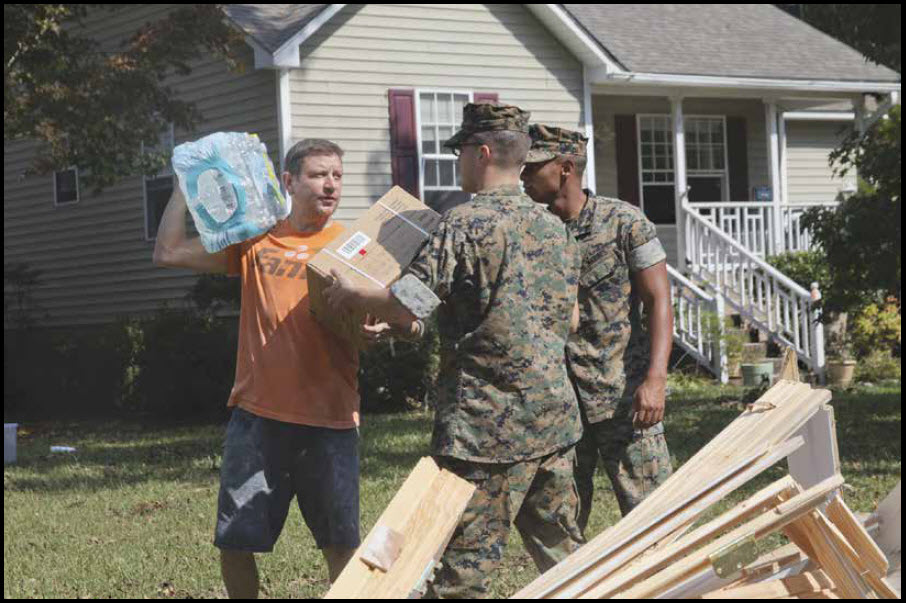 By: Ali Elizabeth Turner
By: Ali Elizabeth Turner
In this season of Athens Now endeavoring to focus on the positive things going on around us, I “surfed the ‘Net” a bit and found (without any surprise to me) that our military, especially the National Guard, is stepping up to help wherever they are needed. The states of New York and Maryland have called up the most troops, and they are involved in a number of crucial missions. They are distributing much-needed PPE (Personal Protective Equipment) as well as collecting and delivering COVID tests. They are getting food to people who need it, are helping out at state emergency operations centers, manning phones at call centers, and answering questions re: COVID — basically whatever is needed. As much as I hate the fact that they are having to be taken away from their regular jobs as well as their families, it blesses me to know that they are on the job. What also brought me comfort was an opinion piece written by a general who understands the value of being prepared and executing at a moment’s notice.
The Military Times recently published an op-ed piece entitled, “The Military Health System Is Uniquely Suited To Handle The Covid-19 Virus” and in it, Army Lt. General Ron Place stated in part:

In the best of times, the primary mission of the Military Health System is to maintain a medically ready force and a ready medical force. This means we must ensure American Soldiers, Sailors, Airmen, Marines, and Coast Guardsmen are medically ready to deploy anywhere, anytime to defend the nation. It also means we must develop and sustain our own medical teams to be trained and ready to support the force. Shifting focus from this primary mission carries risk; however, after two decades of conflict, we are well prepared to both identify risk and develop strategies to mitigate it.
This is not theoretical. We’re taking actions with tangible effects. For instance, we are rapidly shifting as many physicians, nurses, and other medical professionals as we can from administrative duties to direct patient care. We’re plowing new ground by graduating new doctors and nurses months early from the Uniformed Services University of the Health Sciences, the military’s medical school, so they can join the fight – now. In our military hospitals and clinics, we’ve limited elective medical and dental procedures, so we can decrease surgical inpatient needs, shift clinical staffing toward COVID response, and conserve medical resources for the COVID fight.
Additionally, we’re identifying patient bed space on military installations and planning how to quickly convert — or return to use — unused space, with all of the needed equipment and supplies. That means, in some cases, converting office space once used as patient rooms when our military was twice the size, back to treatment areas. Fighting this pandemic is all-hands-on-deck. No good idea is off the table.
The reassuring news is that the Military Health System is, in some ways, uniquely suited for this crisis. Just as every Marine is a rifleman, every medical provider in our system is a generalist. While many of our health care providers normally do focus on specific diseases or specialties, they are trained to treat patients across the range of needs wherever they’re called to serve. Agility is part of what we offer our nation every day.
Indeed, they are good at what they do, and I am forever grateful for their “agility.”
By: Ali ElizabethTurner


